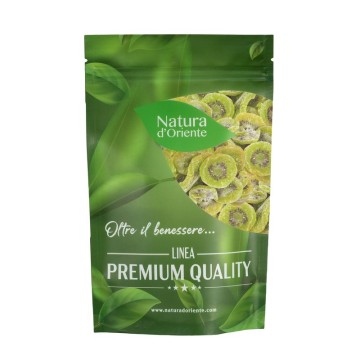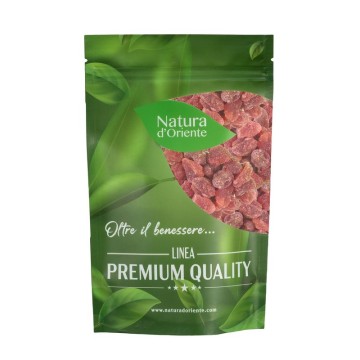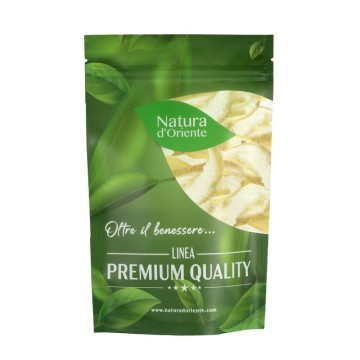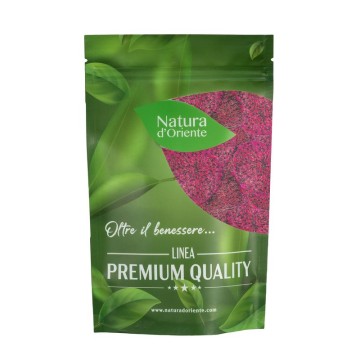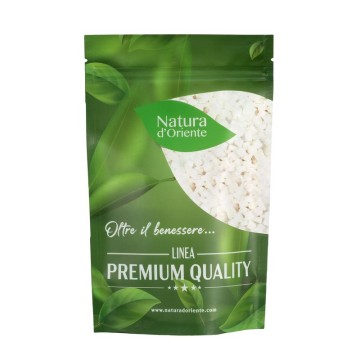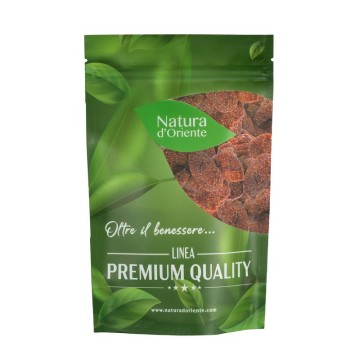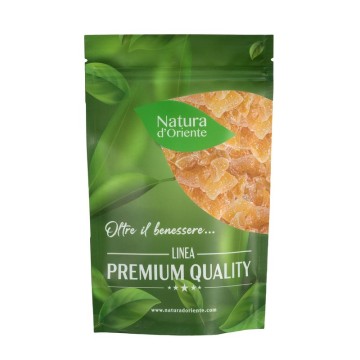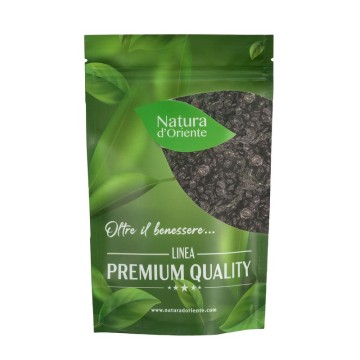Dehydrated papaya
Eating dried papaya serves as a delicious snack but is still a good way to increase the supply of beneficial nutrients for our body, let's see why!
Dried papaya: properties and benefits
The dehydrated form of the papaya fruit, native to the American tropics, is excellent to be consumed. The fruit is dehydrated so that it can be stored for longer periods of time. Since it is composed largely of water (about 88%), once dried it becomes a concentrate of its nutrients, energizing and positive for health. Rich in various enzymes, minerals and antioxidants, papaya has a high level of vitamin C, and substances such as pectin, vitamin A, soluble fiber, B vitamins, zinc, copper, magnesium, calcium and iron. In one serving of this dried fruit, you will get these substances, with health benefits that affect different organs of our body.
The high levels of carotenoids and antioxidants found in dried papaya help to counteract cellular aging and protect skin and hair. The beauty of the skin will also benefit from antioxidants and vitamins, while the high level of soluble fiber can regulate digestion.
If you're recovering from a stressful time, papaya can also provide an optimal energy boost with its nutrients. An adequate dose per week can give an optimal amount of sugars and vitamins; for athletes, it can replenish the minerals lost with physical activity or sweating.
Papaya contains an enzyme called papain, which can break down the protein chains found in meat. It is a substance rich in digestive enzymes, therefore it facilitates the process of absorption of meat and, in general, of proper digestion. This property has meant that in ancient times papaya was used to tenderize meat. Also in the past, papaya was known in the East to protect the liver from disease.
It therefore helps in the detoxifying action of the body, since it stimulates the elimination of digestive waste. At the level of protection from "harmful" molecules, as we have said, antioxidants, including carotenoids present in papaya, can neutralize free radicals - molecules that metabolism creates and that can cause oxidative stress in our cells.
The reduction of oxidative stress is attributed to the lycopene content present in the papaya. This element, together with vitamin C, can protect the heart and increase the protective effects of "good" HDL cholesterol. Thanks to the content of minerals such as calcium, magnesium and potassium, papaya is also valuable for bone health.
Origins and History of cultivation
Scientifically known as the fruit of the Carica papaya, papaya is native to the American tropics and Central America - especially Mexico, where it grew wild. Much appreciated since ancient times, the fruit was known in ancient Mexican with the name of Chichihualtzapotl, which means "sweet fruit of the nurse", linked to fertility.
The papaya plant was also defined by the Maya as the "tree of life", and in the sixteenth century the Spaniards spread the seeds in the Caribbean and the Philippines, from where they arrived in India and in Africa. To date, the plant is grown in many tropical countries, even in Africa and Asia, with temperatures that must never drop below zero degrees. In Italy little is grown in Sicily and Calabria, giving fruit only in spring - summer.
Every part of the plant was used and continues to be used, from the fruit famous for its sweetness to the leaves for herbal teas, the dry seeds as a spice. In many countries, unripe papaya is boiled to make a side dish, useful for digesting meat.
Papaya seeds were also considered for their bitter taste properties, often dried and ground - used as a substitute for black pepper to season meats, salads, fish.
Plant and Fruit
The Carica papaya plant is a non-imposing tree with little branching, although the stem reaches 10 meters in height in some cases.
The trunk is tender, with scars due to growth, with a lymph that is toxic to humans. Its leaves are palmate and lobed, and the flowers grow continuously - even simultaneously with the fruits. The papaya plant does not need a particular soil, but the temperature must be warm or temperate. It reaches the age of about 5 years.
The papaya fruit shows an ovoid shape and a color that can change between green, yellow, orange or pink. It is not small, it reaches up to 30 cm and can weigh up to 9 kg, although usually for commercial reasons it is preferably cultivated in the dwarf variety which produces fruits of about 500 grams. It is a fruit made up of three parts, all edible: the pulp, seeds and leaves of the plant, which can be cooked as a vegetable.
Nutritional values of dehydrated Papaya
The nutritional properties of dehydrated Papaya are interesting. In particular, as we have seen, it contains a good dose of carbohydrates, vitamins, minerals, folic acid and flavonoids.
It is known for the amount of vitamin C (about 80 mg / 100 g) and vitamin A (about 180 mcg / 100 g). In the dried version, papaya contains about 370 Kcal per 100 grams, and is dense with energizing sugars (76 g / 100 g). It does not contain fat (0%), but fiber (about 4 g / 100g). It also makes available minerals such as potassium (about 600 mg / 100g), calcium (about 150 mg / 100g), iron (0.66 mg / 100g). Once the water is removed, this food can be consumed in larger quantities without feeling too full, and nutrient intake will be much more efficient.
How to consume dehydrated Papaya in the kitchen or as a snack
The taste of papaya is similar to that of peach or melon, soft, watery. It can be easily dried, useful for preparing delicious food and drinks, as well as a snack.
Dried papaya can be eaten as an energizing snack or as a complement to a meal. It can be used in pastry and cooking, especially for the creation of decorations, mixes of cereals and salads, or energy bars. Dehydrated Papaya Slices can be added to vegetable drinks and fruit juices, alloyogurt, tea, and can make a top decoration for ice cream, cake, cupcake or muffin. Dried Papaya can also be used for smoothies or cocktails, to make them sweeter and more eccentric in mixing.
Dried papaya: side effects and contraindications
There are no specific contraindications to taking Papaya in the right doses, but as with many dried fruit, natural sugars are very high. For this reason, dried papaya is not recommended for those suffering from diabetes, as it can raise blood sugar levels. During pregnancy it is not recommended to consume large quantities of this fruit, due to the presence of papeine, a substance that can induce uterine contraction - in reality it has been observed more in the unripe fruit. In large doses dried Papaya could cause a laxative action .

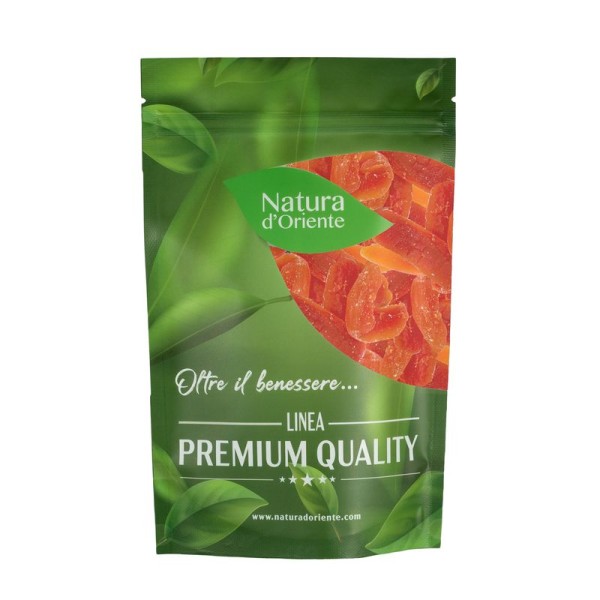







 No reward points for this product.
No reward points for this product.
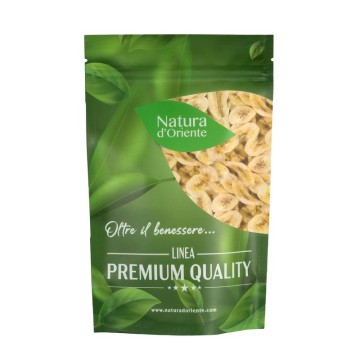
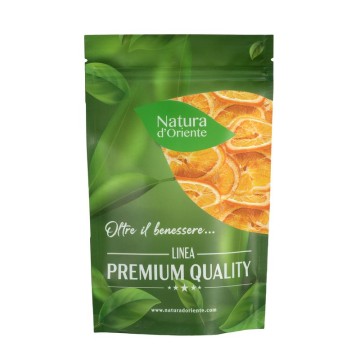
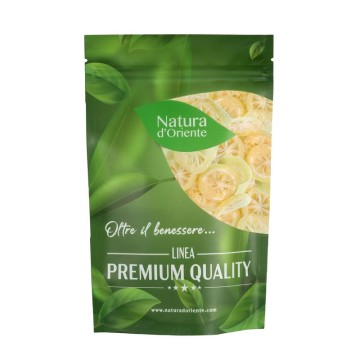
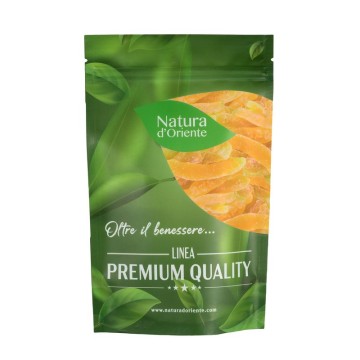
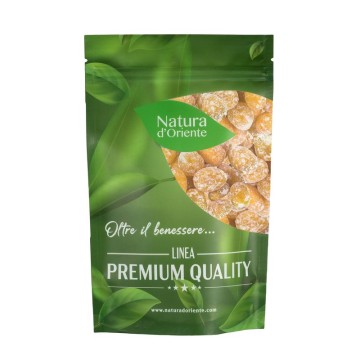
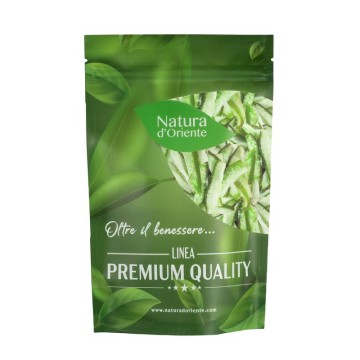
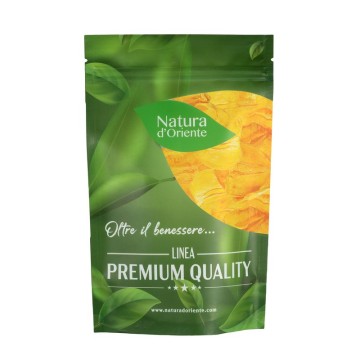
![Natural dehydrated grapefruit without added sugar [NATURADORIENTE]](https://www.naturadoriente.com/10190-home_default/pompelmo-naturale-disidratato-senza-aggiunta-di-zucchero.jpg)
